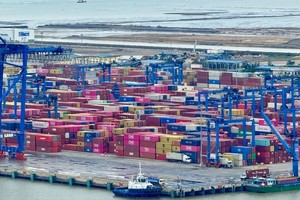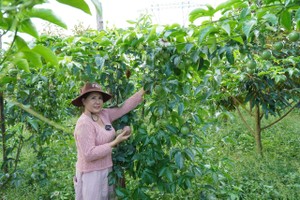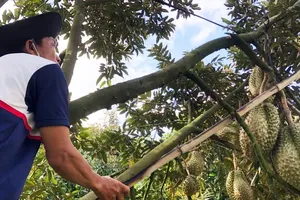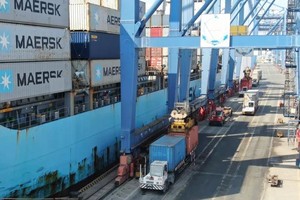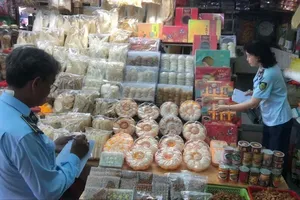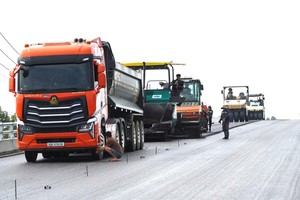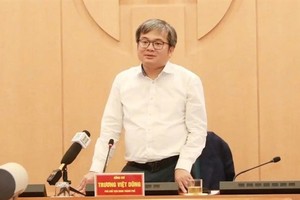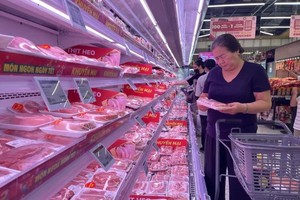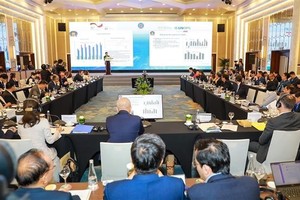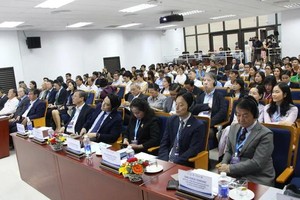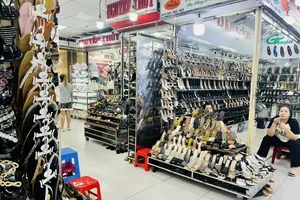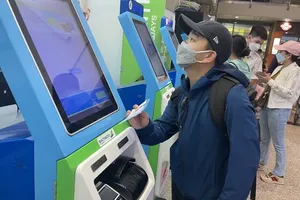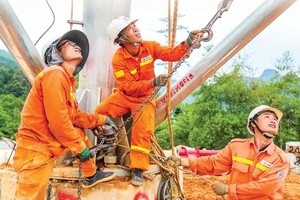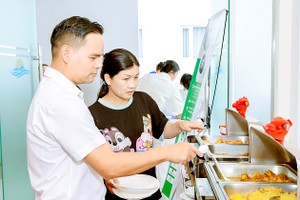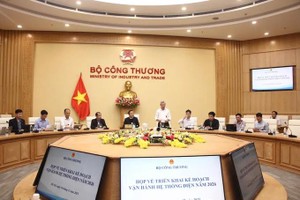The country's investment climate has witnessed significant improvements following three challenging years of macroeconomic instability, according to Minister of Planning and Investment (MPI) Bui Quang Vinh.
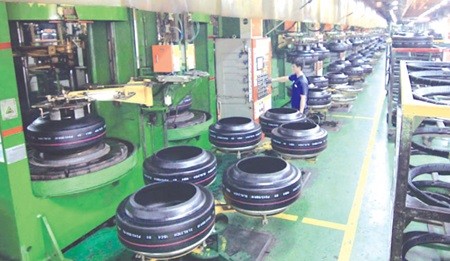
In his opening remarks at the mid-term Viet Nam Business Forum 2015 held yesterday in Ha Noi, the minister said the forum would help boost the international integration of Viet Nam, especially at the time of signing and participation in new free trade agreements (FTA).
With the theme "Enhancing Enterprise Competitiveness for Global Integration," the forum focused on the solutions and measures to develop the private economic sector and make it more competitive for global supply chain.
The minister forecast an annual growth of 6.2 per cent for 2015, adding that local business difficulties were easing.
Chairman of the Vietnam Chamber of Commerce and Industry (VCCI) Vu Tien Loc said the local business community had recognised the Government's efforts to provide a better regulatory environment.
However, the VCCI chairman pointed out the lack of transparency in access to regulatory documents of Government agencies, unpredictable changes in rulings by regulatory agencies, and law enforcement not conducive to business still troubling local enterprises and firms.
Meanwhile, Sherry Boger, Chairperson of the American Chamber of Commerce (Amcham) emphasised that Viet Nam had been extremely successful with international economic integration in general and with the US in particular.
She remarked that last year, the total trade between the two countries reached US$36.3 billion, up by 20 per cent. She added that it could reach nearly $72 billion by 2020 if the present trends continue, and even more with TransPacific Partnership (TPP).
The Amcham chairperson added that in 2014, Viet Nam became the leading supplier to the US among ASEAN countries, ahead of Malaysia and Thailand. Viet Nam's share of total US imports from ASEAN was 22 per cent and could exceed 30 per cent by 2020.
Addressing the forum, Prime Minister Nguyen Tan Dung said more work needed to be done determinedly to secure the rapid and sustainable socio-economic development of Viet Nam.
He added that the Government would do more to stabilise macroeconomic elements by controlling exchange rates, inflation, budget overspending, and trade deficit.
He told the forum that the Vietnamese Government would commit to improve the business and investment climate, as well as raise entrepreneurs' competitiveness.
"Aiming to sign 14 FTAs in the coming time, Viet Nam will establish trade relations with 55 partner countries, including 15 member countries from G-20. That will be the fundamental foundation for Viet Nam to integrate with the world," said Dung.
Nguyen Thi Hong, Deputy Governor of the State Bank of Viet Nam, said the SBV had used its monetary policy tools in restructuring local financial institutions and enhancing monetary and banking regulations. As a result, it would improve investors' confidence in Viet Nam. Hong noted that the SBV would reduce the bad debt rate to 3 per cent by the end of 2015.
Country Director of the World Bank Victoria Kwakwa said Viet Nam had made significant progress in a number of areas and important legislations, adding that the WB would see how the country continues to move in the right direction and towards a more private sector-driven economy.
She said key FTAs would allow Viet Nam to transform itself and move towards a modern industrialised economy.
Highlighting that significant progress had been made in important issues for the businesses community, the co-chairman of Vietnam Business Forum Consortium, Virginia B Foote, said since the last forum, new laws on investment, enterprise, and land had been passed, while some amendments to the Tax Law were made to attract investment, support industries, and develop the local economy.
Sigmund Stromme, Chairman of the Nordic Chamber of Commerce, said international companies were still experiencing great problems due to increased transport and logistics cost caused by congestion in ports and the limited handling capacity of major Vietnamese ports.
He suggested that for Viet Nam to remain competitive compared with its neighbouring countries, it was important to improve cargo handling capacity and costs.
Meanwhile, Japanese and Korean representatives mentioned issues including visa exemption, one-time licensing, and their labour and human resources facing troubles in Viet Nam.
The one-day forum was co-organised by the MPI, International Finance Corporation, and the World Bank in Ha Noi.
